Prep
Week 4, Term 3

Prep
Week 4, Term 3
INFORMATION
🌈 100 Days Brighter - Thank you
We would like to thank everyone for being part of our 100 Days of School celebration. The children looked absolutely fantastic and we are so grateful for all the delicious food contributions for lunch. The students had a wonderful time making their 100-day crowns, creating fruit loop necklaces with 100 fruit loops and dancing their hearts out at the disco. We’ve uploaded your child’s individual 100 Days photo to their Showbie account, so be sure to take a look!
🎭 Matilda Jr.
Reminder: In your child’s Showbie account, you’ll find a pink folder labelled 'Costume Photo – Matilda Jr.' To help ensure that every Prep student has a suitable costume for the show, Tim and Kristy kindly ask that you upload a photo of your child wearing their costume to this folder as soon as possible. Thank you for your support in helping us get everything ready for a fantastic performance!
👕 Clothing
Please ensure that all items of clothing that your child wears to school are clearly named. We can easily return labelled items when they are found, but we often come across unnamed clothing. At the moment, we have two school jackets (size 6) without names. If you think one of these might belong to your child, please come and see us.
🎨 Specialist timetable - updated for Term 3
**Please note - Prep A and Prep C have new library days
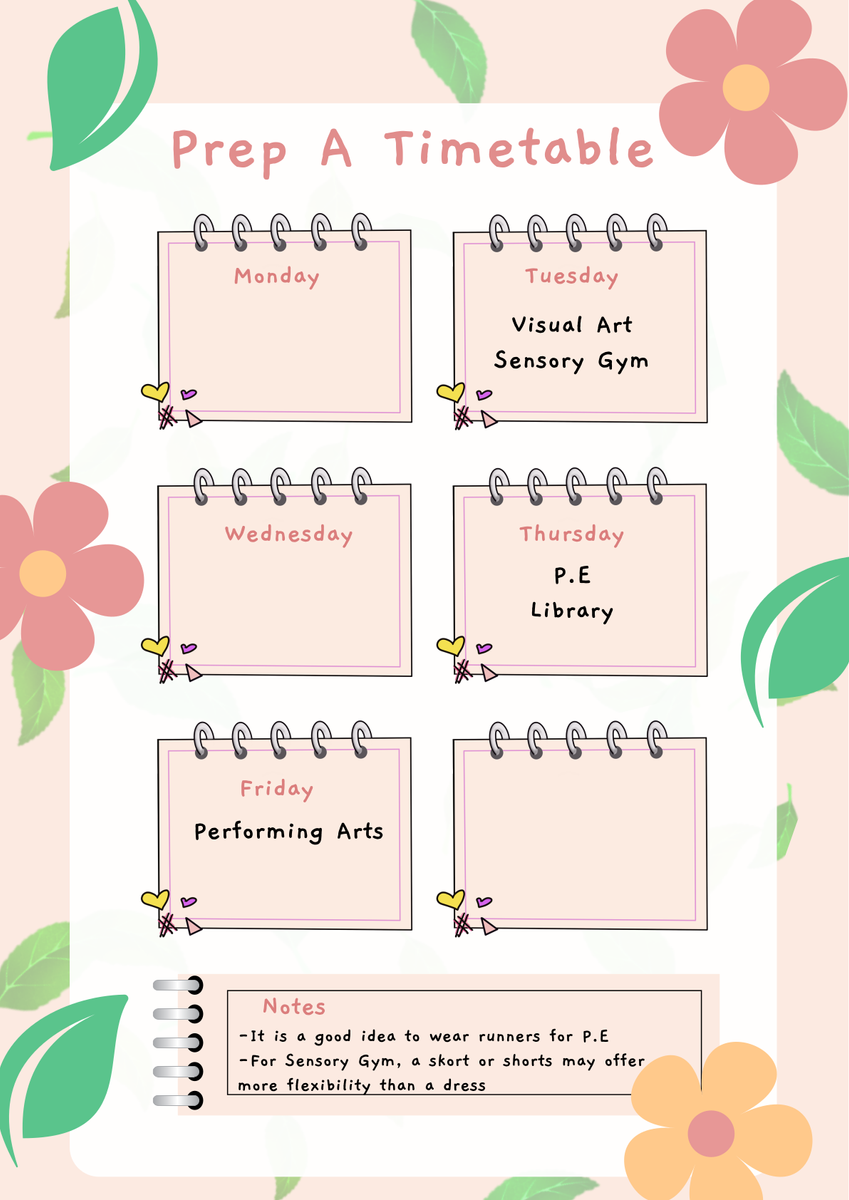
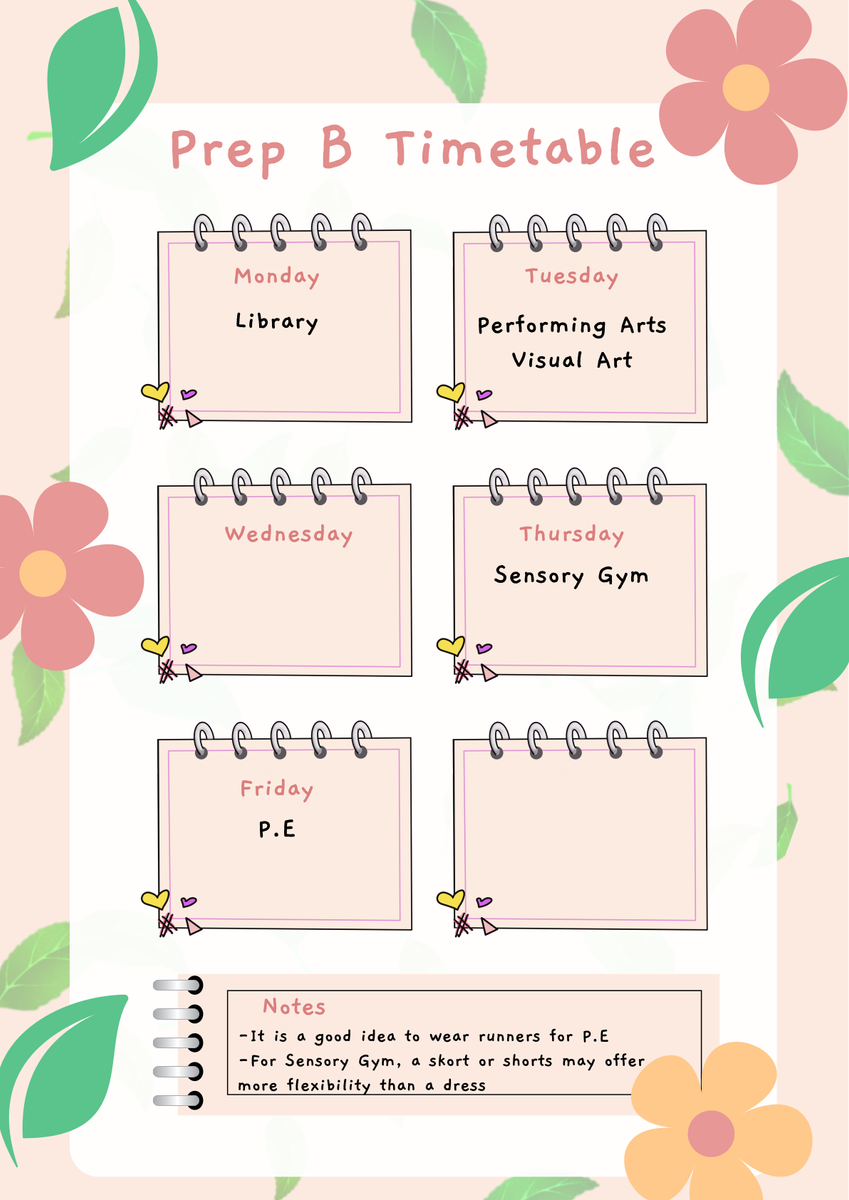
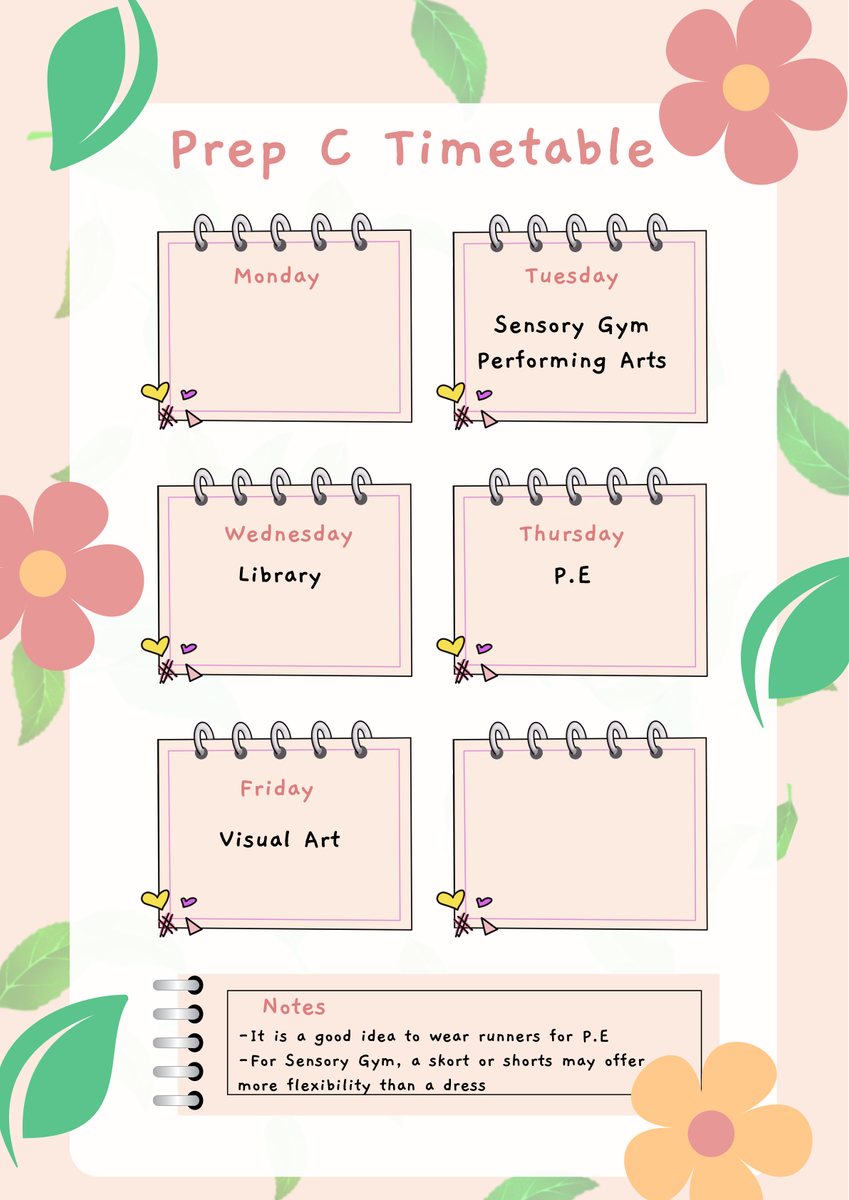



CURRICULUM
📚 Phonemic awareness: reading and phonics
We will be learning about how F, L, S and Z are doubled after a short vowel sound, and then we'll be learning about how the vowel sounds can change in words ending in '-all', '-oll' and '-ull'.
We’ll focus on:
• Revising the phonemes (the sounds the letters make)
• Practising the graphemes (how we write the letters with correct formation)
• Using the matching cued articulation actions to support sound recognition.
• Reading longer words (CVCC/CCVC words) like miss and fizz.
We’ll also revise the Heart Words: your, want and learn the words go, no, so and also
What can you do at home?
• Help your child read the take-home book, decodable passages and Heart Words from their book pocket. Aim for fluency by the second day of reading.
As your child reads, encourage them to recognise familiar words instantly and only sound out unfamiliar ones.
• Enjoy bedtime stories together to build vocabulary, comprehension, and a love of reading.
• If you're interested in learning more about Cued Articulation, you can watch this helpful video by Jane Passey (the founder), where she explains and demonstrates each sound: Cued Articulation with Jane Passey
• Work through the optional UFLI home pages if you’d like some extra phonics practise at home.
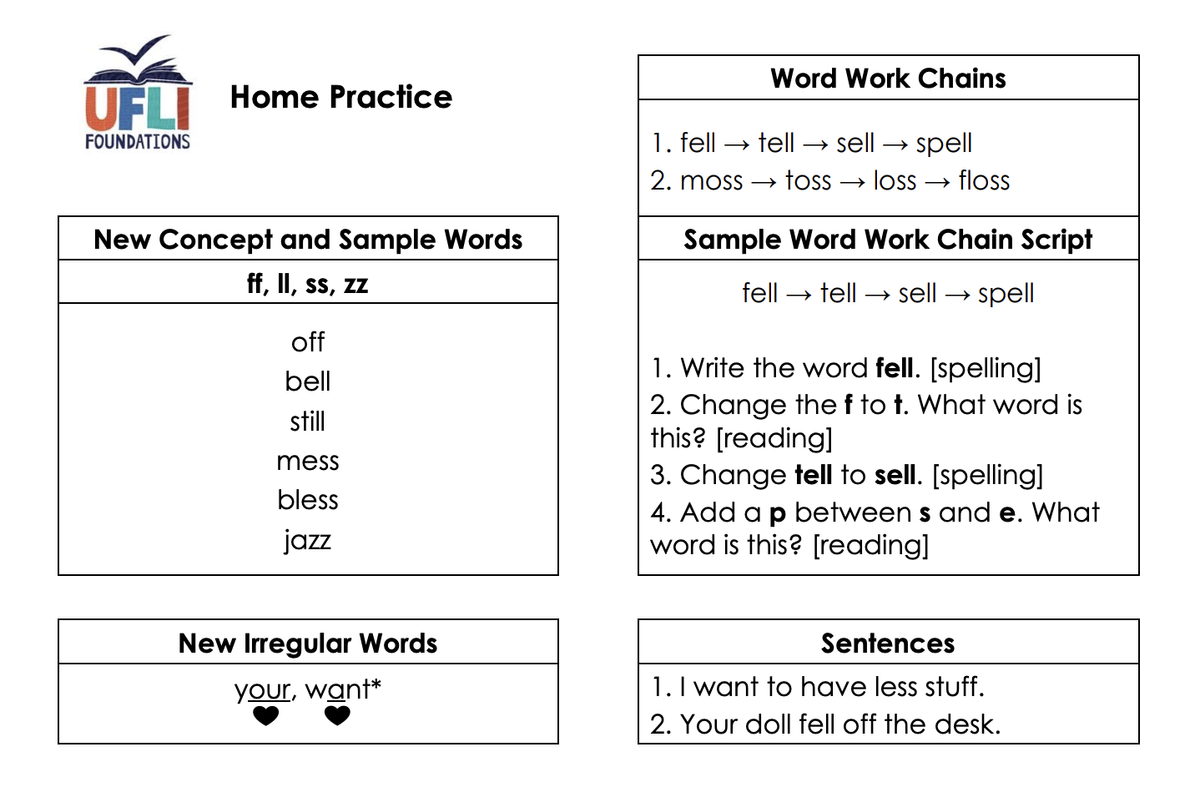
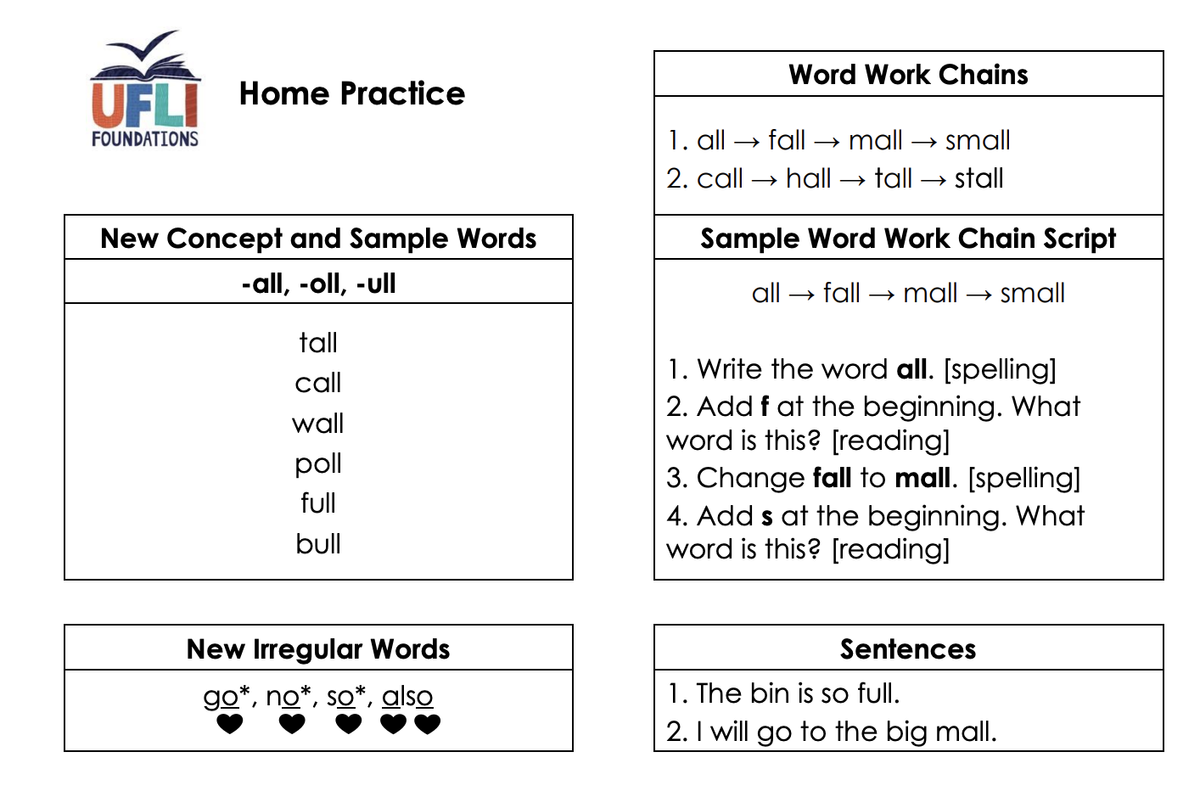


📝 Literature: reading responses and writing
Students are continuing to learn about the history of Wonga Park using non fiction texts. As there isn’t an age-appropriate book about Wonga Park Primary School and its origins, Jocelyn Hollyman has once again written a special text just for our students. This week, the focus is on understanding the difference between facts and opinions. Students will compare two classrooms - one from the past and one from today - by listing their features and writing short opinions about what they notice. They will practise identifying and writing fact statements about life at WPPS in the past, as well as exploring another school-related image to record both facts and opinions. To finish, students will reflect on whether they would rather go to school in the old days or now, and explain their reasoning.
Students will continue to develop their skills as independent writers by revising the correct formation of the letters F, S, L, and Z, with a focus on building fluency and consistency in their handwriting. During our Mentor Text lessons, they will engage in writing tasks that involve creating non-fiction statements, exploring the difference between facts and opinions. This will help them practise clear, purposeful writing while deepening their understanding of factual texts. In addition, students will learn how to use adjectives to add detail and interest to their sentences.
What can you do at home?
• Practise writing all lower case letters of the alphabet, focusing on correct starting points and smooth movements.
• Look for nouns and verbs in books or around the house. Ask your child to name a noun (like dog) and a matching verb (like runs), then put them together in a simple sentence. Next, add an adjective to describe the noun for more detail — for example: "The fluffy dog runs".
• After reading a book together, ask your child to tell you one fact about the book and one opinion about the book.
• Play simple sentence-building games - give your child a noun and ask them to think of a verb to go with it, or vice versa.
• Practise writing the Heart Words, taking care to notice the tricky 'heart' parts in the word.
🔢 Maths
Students will explore the concept of capacity. They will begin by identifying capacity as an attribute and learning the language used to describe it. Students will directly compare the capacity of different containers, then compare by pouring the same amount into each to see which holds more or less. They will also practise predicting the capacity of various containers and then checking their predictions through hands-on activities.
What can you do at home?
• Use everyday items (cups, jugs, bowls) to talk about which can hold more or less.
• Let your child help in the kitchen by pouring water, milk or juice into different containers to compare capacities.
• Fill two containers with the same amount of water and talk about how they look different depending on the shape and size.
• Play 'guess and check' by predicting which container will hold more, then test by pouring.
• Use bath time to explore capacity with cups, buckets and other containers.
• Encourage your child to use words like full, empty, more, less, holds more, holds less in conversation.
🌏 CBL - Change
Students will complete most of their learning during Mentor Text sessions, using the specially written non-fiction text about the history of Wonga Park Primary School. This will guide them in exploring the question: What was Wonga Park Primary School like before I was here? and help them develop a deeper understanding of the school’s past. As part of the experience, each classroom will host two ‘old-fashioned’ games, such as jacks, hopscotch, marbles or skipping, giving students a hands-on taste of school life in earlier times.
🫶🏼 Respectful Relationships
Students are learning about Positive Coping - Managing Emotions. In this session, they will learn about self-calming and self-cheering strategies to help them manage strong emotions in positive and healthy ways. Students will explore simple techniques they can use when they are feeling upset, frustrated or nervous, supporting their emotional awareness and developing important self-regulation skills.